International Women's Day: Meet seven women working jobs 'in a man's world'
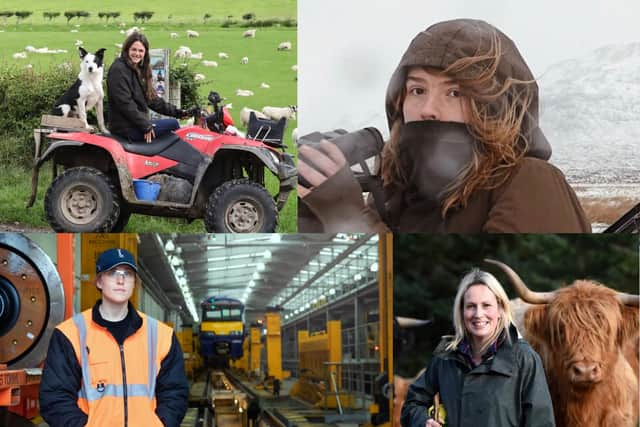

From a trawler crew member who claims there is still no sign of a female skipper in Scotland s fishing industry, to one of the 0.4 per cent of female professional engineers in the UK, we wanted to know what it’s like for them to be doing jobs that are still widely considered ‘for the boys.’
Trawler crew member
Elaine Black, from Pittenween in Fife, is crew member on a langoustine trawler with her skipper husband, Ed.
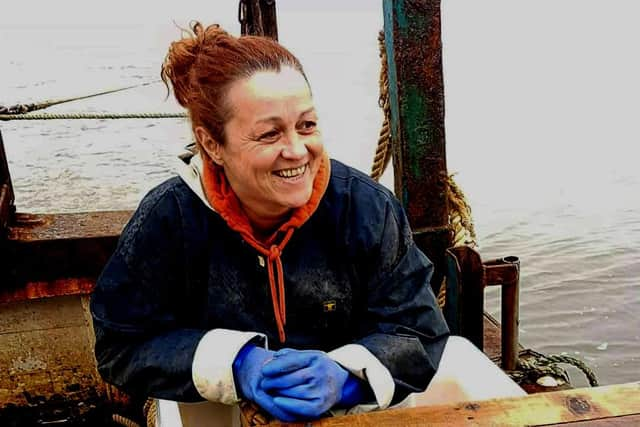

Advertisement
Hide AdAdvertisement
Hide AdHer days average 14 hours at sea and involve physically demanding work.
The 48-year-old mum of identical twin girls, who is also a director of UK Women in Fisheries, said she hopes to see change in the male-dominated industry after claiming there are no female skippers in Scotland, and very few crew, of which she is one.
She said the reasons behind the lack of women on boats are not discussed enough for change to happen - and she’s not talking about the ancient superstition of women aboard bringing bad luck.
“There are lots of practical issues that get in the way of women taking to the fishing boats,” she said.
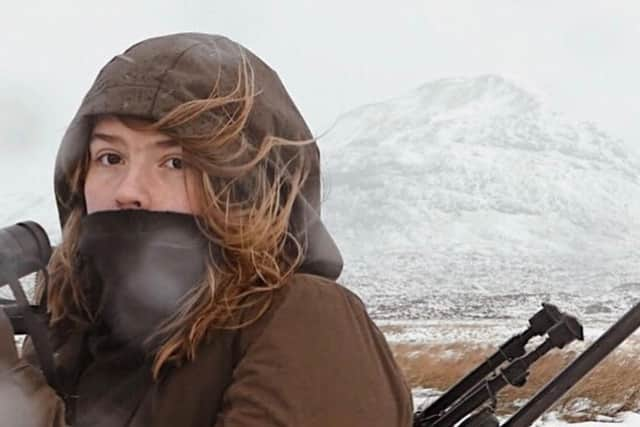

“A toilet, for example. There aren’t any toilets on the boat which can be an issue for mixed crews.
“I am with my husband, so I can just pee in a bucket no bother.
“Also a skipper’s wife might not feel comfortable with a female member of crew out on the boat with him for what can be days on end. It’s these awkward questions we need to raise before we see change.”
One solution to encourage more women into the roles would be to run all-female boats, Elaine said.
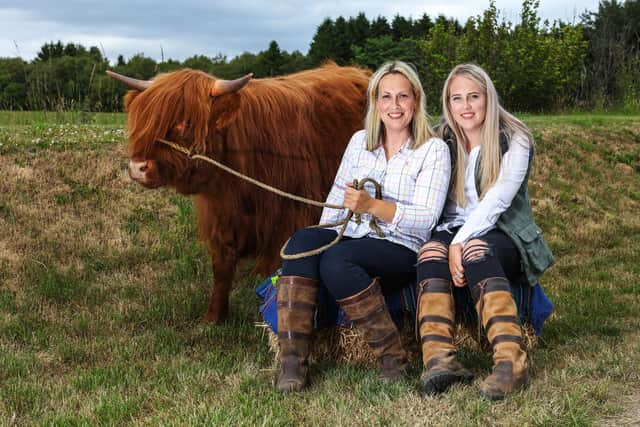

Advertisement
Hide AdAdvertisement
Hide AdShe talked about all-women crews in Alaska and how their pioneering work in the fishing industry should be brought to Scotland to bridge the industry’s gender imbalance.
“I don’t say that to segregate men,” she quickly added, “it’s for practical reasons.
“Also, when you see strong women coming together, they smash it.”
Ghillie
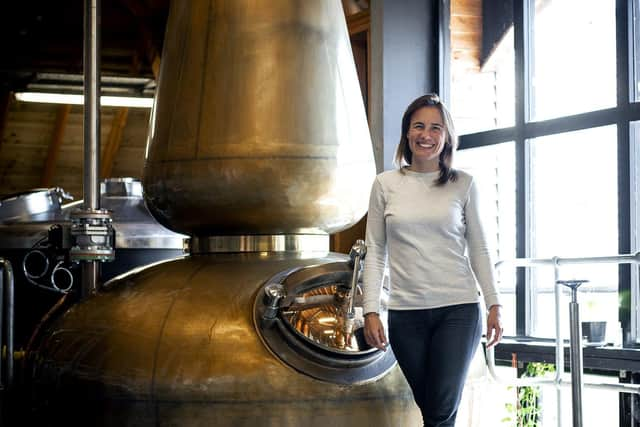

Charlie Blance is one of Scotland’s youngest qualified female ghillies - a Gaelic term which translates as men or boys who act as attendants on a fishing, hunting, or deer stalking expeditions.
The 22-year-old, who has worked on Rum, Rannoch Moor and Assynt, said female interest in roles like hers has grown, but the industry is still predominantly male-run.
“I often hear ‘oh, but it’s a very physically demanding job’ when I talk about what I do,” Charlie said.
“You would think we’re beyond that now, but it still happens a lot.
“Moving hinds is tough, but the job also requires you to think smart, it’s not just down to being physically fit, which I am anyway.”
Advertisement
Hide AdAdvertisement
Hide AdCharlie was made redundant in October last year due to Covid. She said applying for jobs reminds her of the sexism that still lingers in the industry.
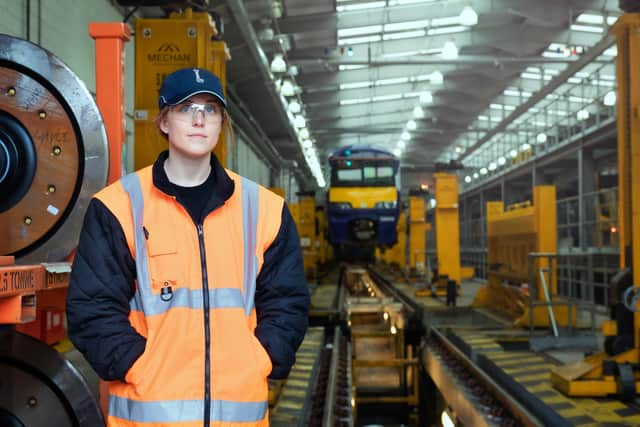

“Sometimes when I pick up the phone I hear ‘oh, Charlie as in a girl Charlie’ and then don’t hear back. I am not saying this is representative of the industry, but it’s still happening and there are still boundaries to break.
“I agree not every woman wants this job, but the women who do need to see that it’s possible.”
Farmer/Highland cow herder
Women have always played key roles in farming but it is still chiefly a male-dominated industry with about 12,000 men in the role compared to about 2,100, according to a 2020 ONS survey in Scotland.
Grace Noble, 42, started her own farm in Aberdeenshire from scratch. With no background in the industry, she quit her job at Aberdeen City Council, built her own butchery and grew her current herd of 140 Highland cows from which she now sells premium Scottish beef to customers including Balmoral Castle.
“The ‘you’ll never make money out of Highlanders’ and ‘what you’re planning is not economic’ comments cropped up while I was setting up my businesses but I just had to ignore them,” said Grace, who lives with her 18-year-old daughter Beth and son Archie, 15.
“It’s a tough industry, and yes it’s seven days a week of blood, sweat and tears but the industry needs women. I have seen raw evidence of female farm workers diversifying traditional methods and bringing in the cash through smart and modern ideas from great farm shops to use of tech.”
Distillery founder
AnnabelThomas is the chief executive and founder of Nc’nean in the Morvern peninsula on the west coast of Scotland. The distillery’s name is a combination of Gaelic term “Nc”, meaning “daughter of”, and Neachneohain, the Queen of the Spirits in Gaelic legend, a protector of nature who was never afraid to walk her own path – traits that run true at the predominately female-run sustainable distillery.
Advertisement
Hide AdAdvertisement
Hide Ad"Women in whisky is a game of two halves really,” the 38-year-old said.
"Inside the industry, it’s supportive and there's a lot going on to make sure women are very much part of the whole picture.
"But there is still a lot of work to do."
Nc’nean, which is often mistaken for Mc’ (son of) Nean – oh the irony – hosts a women-only programme to encourage more into the industry.
"The demand was bonkers for this year’s application process – about 200 applications for two places – which is really encouraging to see,” Annabel said.
But the whisky expert said she still gets regular reminders of sexism towards women in the predominantly male-run industry.
“I still get the ‘do you actually like whisky’ comments which are exhausting, to say the least.
“At events a colleague and myself, who is female, are sometimes asked ‘and what are you two pretty ladies doing selling whisky?’ to which I respond to saying I am the founder and CEO of a distillery.”
Women in the UK now drink 40 million more glasses of whisky a year than they did in 2010, a rise of 15 per cent, compared with a decline of six per cent among men, according to research by market firm Kantar in 2020.
Train fleet engineer
Advertisement
Hide AdAdvertisement
Hide AdThe UK has 449,600 male engineering professionals and 59,000 female, according to ONS figures last year.
Megan Caldwell is a fleet engineer based at ScotRail’s Shields Depot in Glasgow.
She said: “We need to get to the point where we don’t celebrate women in these roles because it’s just normal.”
The 25-year-old, who is one of three women in her role in the company, said the growth of women in her industry has benefited hugely from groups such as Women in Engineering which have made the “man jobs” seem more approachable, but that many industries “still need to be challenged.”
"All management above me are men, but the director of engineering is a woman. So, there’s definitely progress, and ScotRail does put measures in place to encourage women into the industry, but there is still more work to be done, it’s still very much a male-dominated role what I do.”
Cruise skipper
Jayne Eddie, from Mallaig, is a skipper at Western Isles Cruises.
Starting out in the company’s office she realised the 9 to 5 job was not for her and completed her boat masters to become a fully qualified skipper.
Driving boats that can reach up to 16m long, she said she’s often told she’s “doing a man’s job.”
Advertisement
Hide AdAdvertisement
Hide Ad“Passengers still seem shocked when they see that I am a female driver,” the 31-year-old said, “some still think women aren’t up to the task.”
Jayne has been driving the vessels for four years and said she could probably count the number of Scottish female skippers on one hand.
Shepherdess
Lisa Gast is a shepherdess at Scalpsie Farm on the Isle of Bute where she looks after 1,000 sheep and 170 cows.
Following initiatives of the Scottish Government’s Women in Agriculture Task force in 2019 and groups such as Women in Agriculture Scotland, Lisa said she feels fortunate to be working in a “much more balanced” farming industry compared to times gone by.
The 30-year-old said: “From my experience in farming since 2012 I have definitely seen it more as a male-dominated sector but the female presence is getting stronger every year.
“There’s no field that a woman can’t do, and this is being more and more recognised in the industry.”
Lisa, whose passion is training sheepdogs, is in the process of hiring a full-time shepherdess.
"I want to encouraging young people into farming, and it’s promising to see more young women feel like they can step forward for many of the roles that the industry offers from tech to science to managing the animals. Farmers, whatever gender, need to embrace this interest and keep up the momentum.”
A message from the Editor:
Thank you for reading this article. We're more reliant on your support than ever as the shift in consumer habits brought about by Coronavirus impacts our advertisers.
If you haven't already, please consider supporting our trusted, fact-checked journalism by taking out a digital subscription.
Comments
Want to join the conversation? Please or to comment on this article.